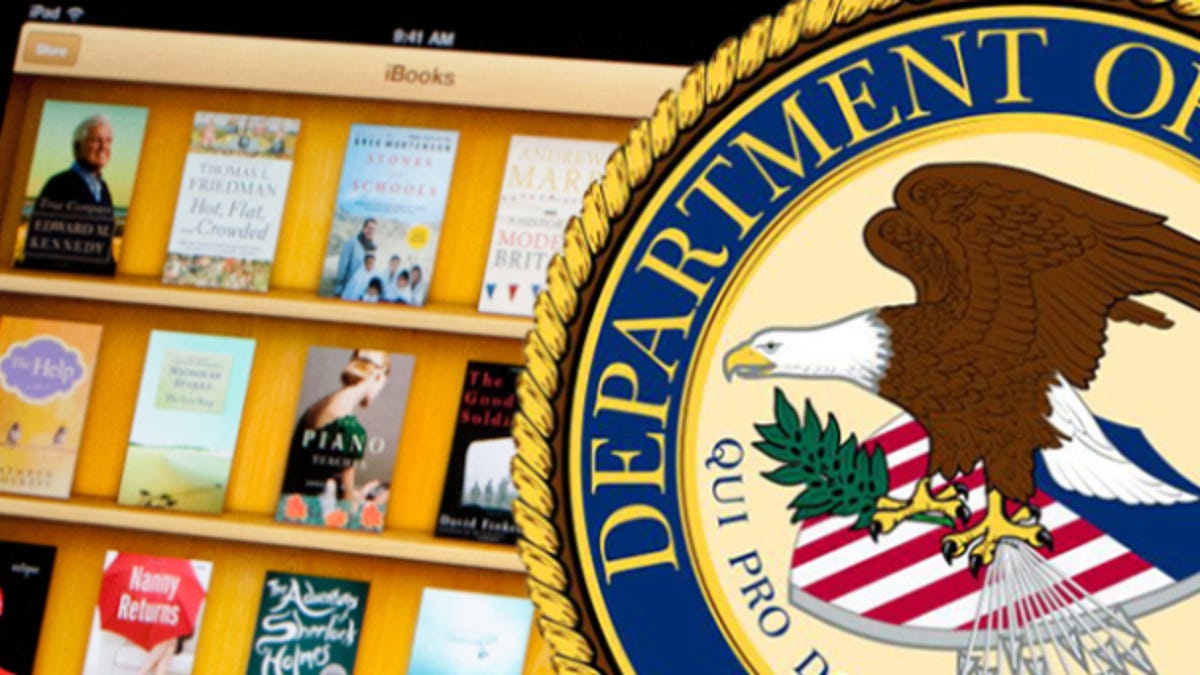Apple says tempered e-book penalties still go too far
After the Justice Department revised proposals to reform Apple following its e-books conspiracy conviction, the company calls the latest remedies a "broadside" favoring rival Amazon.

UPDATED at 1:03 p.m. PT: with judge's recommendations on the sanctions Tuesday.
Apple fired back -- again -- at the Department of Justice over the latest reforms it proposed to protect competition in the e-books market following the computer maker's conviction in July of a price-fixing conspiracy.
In a letter to the court filed Monday, Apple attorney Orin Snyder called the government's revised remedies a "broadside masquerading as a brief" that largely ignores the court's instructions to find a compromise with Apple and rein in a request for an external antitrust monitor.
The Justice Department's brief aims to justify measures that would give rival Amazon a "significant competitive advantage over Apple," the letter said, adding that restraining the company's dealings with Amazon and other e-book retailers in its App Store is outside the scope of what the government pursued at trial.
Snyder asked the court to order the department withdraw its latest proposals and instead file a document in line with what the court requested, or at least give Apple "a chance to respond in full."
Later Tuesday, Judge Denise Cote held a hearing to review her recommended changes to the government's proprosal, and she asked both sides to consult with each other to produce an injunction she could sign into practice next week.
She said she was disappointed with Apple for failing to show it has learned lessons from its antitrust conviction despite numerous opportunities to do so. She said that led her to "reluctantly" agree that the computer maker needs an external monitor, which she suggested should not only evaluate Apple's internal antitrust policies but also evaluate an antitrust training program that reaches anybody at the company involved in content. She pointed to "anyone in Mr. Cue's group," referring to Eddy Cue, Apple's senior vice president of Internet software and services.
However, she said the government's proposed limits on Apple's App Store were too disruptive. "I want this injunction to rest as lightly as possible" on Apple while still ensuring consumer protection, she said. She said a measure requiring Apple to include hyperlinks in their iOS apps to e-book rivals' bookstores wouldn't produce a benefit to the market that outweighs "the disturbance it would cause in Apple's management of the App Store."
Both Apple and the government agreed to submit another proposal to Judge Cote by Wednesday.
After winning its antitrust suit against Apple last month, the government filed an initial set of reform proposals that asked for an injunction of 10 years, an external antitrust monitor to keep tabs on Apple, and a requirement that other e-book retailers like Amazon be allowed to link to their e-bookstores from iOS apps.
That stoked an outcry from Apple that the proposed measures were vague, overreaching, and unwarranted. At a hearing this month, Cote told the two sides to meet, find common ground on the remedies, and report back to her.
Last week, the Justice Department filed a brief stating it is willingness to cut the length of the injunction to five years, with the ability to seek a limited number of one-year extensions. It followed Cote's suggestion that the injunction stagger Apple's negotiations with publishers going forward to minimize the possibility of future collusion. It also removed some language regarding app hyperlinks for rival retailers that Apple had complained regulated its App Store.
However, the Justice Department said having an external monitor is required, despite remarks by Cote earlier this month that such oversight may not be needed. It also disagreed with Apple about two other areas -- that Apple allow e-book retailers to provide links to their Web sites without compensating Apple and that the injunction includes provisions prohibiting Apple from taking similar actions in other content markets.
In the Monday filing, Apple said the government's rejoinder simply disregarded the court's instruction earlier this month.
Cote last month ruled that Apple conspired with publishers to hurt competition and raise e-book prices. As a result of that ruling, the court will impose certain sanctions on Apple, and a separate trial will determine the amount of monetary damages Apple must pay. Lawyers have estimated those damages in the hundreds of millions of dollars.

